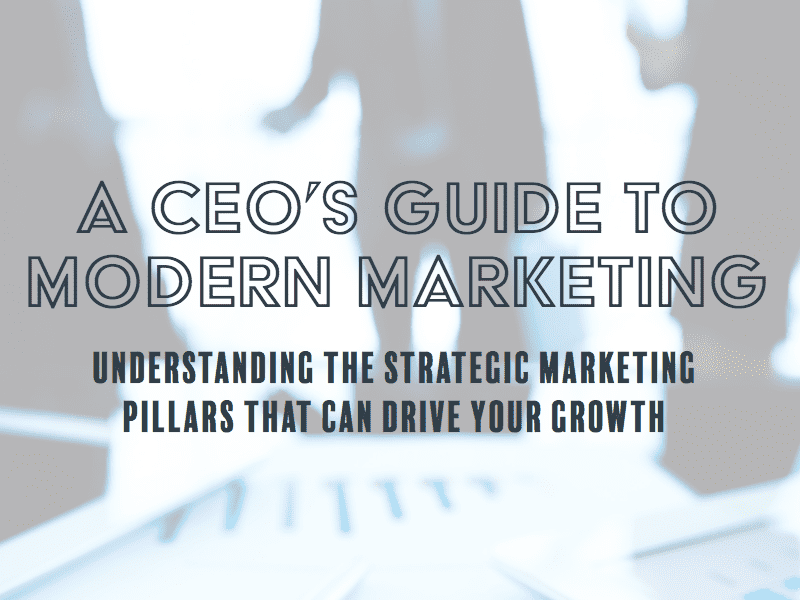Marketing for Private Equity Firms in Low-Tech Industries: What’s the Draw?
When you think of private equity firms, what kind of companies do you envision in their portfolios? Most people picture the high-tech companies of Silicon Valley, SaaS startups, and life sciences firms. My experience with the private equity sector looks much different.
I’ve worked for a private equity firm that was consolidating the rope and sock industries. I’ve also worked with the marketing value creation team of a private equity-backed holding company that specialized in engineering products and services for the weather. Quite a far cry from Silicon Valley!
But while some may think high tech holds more allure, I say low tech offers more opportunity (at least from my narrow, but important, marketing lens).
Here’s a prime example. My most recent private equity project involved assessing the marketing and sales functions at the portfolio company level. During the project, this is what I observed:
- There was a gaping hole where marketing should exist.
- Sales enablement and proposal writing were disguised as marketing.
- Cross-selling across the portfolio was “of interest,” but not a top priority.
- Branding and messaging were outdated.
- No formal strategic or marketing planning processes existed.
- Company websites were not up to modern marketing standards, and they generally made an “okay” impression at best—or worse, a poor impression.
My big-picture findings may seem a bit gloomy. But here’s the good news: These low-tech companies have a long history and they’re profitable. They’re successful despite the limitations I observed, which is exactly why I see nothing but opportunity. Imagine the kind of results they could achieve with just a minimal amount of strategic marketing, solid execution, and baseline reporting!
A Roadmap for Results
While many private equity firms focus on the bottom line and shaving costs, some are starting to explore short-term and long-term top-line growth opportunities. For firms that are ready to embrace the latter, the following phased approach offers a good roadmap.
Phase I: Upfront Marketing Assessment (30 days)
During this phase, we give our private equity clients a “State of the Union” by asking targeted questions, such as:
- Is there a strategy? We look for vital elements like positioning, segmentation, target marketing, ideal customers, and primary personas.
- Are there analytics? Can we identify trends by top customers, sales and profitability by segment, customer churn, lifetime customer value, average sale by customer, and other metrics?
- What marketing technologies is the firm using? For instance, is the website helping or hurting? Is there a customer relationship management (CRM) system with clean, segmented data? Is the firm using any marketing technologies to scale?
- Who handles marketing? Who handles sales? We review the client’s in-house or outsourced talent and assess their effectiveness.
Phase II: Baseline Marketing and Sales Foundation (90 days)
Based on our findings in Phase I, we work towards establishing a solid—but not over-the-top—marketing and sales foundation. And here’s the key: We focus on functionality. In the low-tech world, a functional foundation can look high tech because the bar is typically on the lower side. During this phase, our private equity marketing specialists focus on:
- Writing a clear value proposition at the company level and across the portfolio
- Updating the brand, sales collateral. and proposal templates
- Revamping the website and installing tracking code for measurement purposes
- Implementing marketing automation and CRM software
Phase III: Marketing Plan (runs parallel to Phase II)
When we initiate a strategic marketing program for private equity firms working in low-tech sectors, there’s usually a lot of low-hanging fruit. We build plans that pick these ripe opportunities and drive short- and medium-term revenue. Our plans focus on inactive customers and old leads, top customers, and opportunities to cross-sell within the company and across the portfolio. If these companies need help executing their strategic marketing plans and measuring results, we help with that too.
What’s exciting about low-tech, private equity-backed companies is the potential to drive a tangible impact, relatively fast. To me, that makes them among the most alluring clients to work for!
No matter what types of companies make up your private equity portfolio, the B2B marketing experts at Marketri can fuel their growth. We’ve worked with private equity firms serving a wide range of industries. If you’re ready for a strategic marketing approach that can drive short- and long-term returns, give us a call or download the guide below to learn more about our approach to strategic marketing planning.






